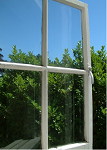This is the thing: The contradictory wording in my sleep study and titration reports had me confused for most of these 3 months as to whether I actually even have apnea or not. Finally cornering my sleep doctor, I now know that I don't have sleep apnea; but I did have an average RDI of 45 events/hour during my sleep study. The lowest fall in oxygen saturation was 95%. During my titration my RDI was 27 and my oxygen saturation was 88%. From the looks of it, CPAP therapy didn't do a specatcular job of helping me breathe better (at least on that night), and it actually made my AHI go up and my oxygen saturation worse. Moreover, I feel worse on CPAP therapy than I did before starting it. The absence of both definitive numbers and the experience of feeling well-rested leaves me doubtful about my diagnosis and treatment.ameriken wrote:
Did you google what oxygen deprivation does to your body?
And that is exactly what sleep apnea is: it is a respiratory problem where a person doesn't breath during their sleep.
So when someone wonders if staying on CPAP and breathing the entire night to provide life giving oxygen to their body is worth it, I've got to wonder what they're thinking?
I've learned here at this forum about UARS, something my doctor has never mentioned, but seems very likely to be what I have, and which does not cause the oxygen level to drop. I will ask her about it tomorrow at my appointment, and whether a lifetime of obstructions and arousals without the apneas could result in the same serious health issues as those of sleep apnea. Either way, CPAP therapy is the treatment for both conditions, but I wonder if there is the same degree of urgency. For you, ameriken, it's crystal clear that CPAP therapy is a lifesaver, and I'm glad it's working for you.
Also, the sleep doctor never went into the negative consequences of not treating whatever it is I do or do not have. I learned that here. I originally went to her because of chronic insomnia (which not only remains untreated but is actually worse), and have entered into this whole strange universe. So the alternatives do not look to me like CPAP therapy vs. stroke, heart disease, etc.; they look like the possible long-term side-effects I've been wondering about vs. possible stroke, heart disease, etc. (due to my not knowing what I have or the consequences of leaving it untreated). Both choices seem like "what ifs," not certainties, and they are about as equally appealing to me.
>*Whew!*< Thanks, archangle! Thank you, also, for explaining why you choose CPAP therapy, in spite of the possible problems that have crossed your mind. The perspective helps.archangle wrote:Nonsense, my dear, you're 5 levels on the arrogance scale below what's required to qualify as a troll.












